Philip Carl Salzman is Emeritus Professor of Anthropology at McGill University, Senior Fellow at the Frontier Centre for Public Policy, Fellow at the Middle East Forum, and Past President of Scholars for Peace in the Middle East.

This is the third of a three-part review of Charles Murray’s latest book, Human Diversity: The Biology of Gender, Race and Class. Self-identified progressives–who make up the great bulk of North America’s coastal and urban government, business, media, and academic elites–are great champions of equality, even at the expense of freedom, justice, and prosperity. But […]
Read More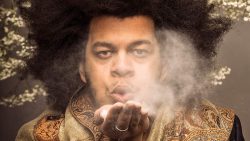
In his new book, Human Diversity: The Biology of Gender, Race, and Class, Charles Murray’s view is not that the 21st century orthodox rejection of the 19th century European concept of race is wrong, but that it goes too far in rejecting the biological basis of human variation. He thinks, however, that the term “race” […]
Read More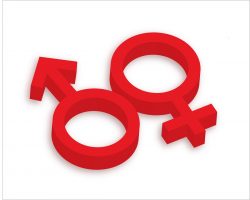
For half a century, the push for gender equality has driven America’s social and political agenda and cast women as victims of male bias and repression. Make no mistake—business, entertainment, science, and academia needed reform, and eventually, the hammer that could break the glass ceiling was handed to qualified women who sought the top job […]
Read More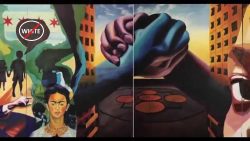
Half a century ago, our colleges and universities were liberal in their orientations and policies. Generally, they treated students and staff as individuals who were judged by their academic achievements and potentials. (Where they existed, the exceptions were numerically minor: children of alumni and athletes.) Students and staff were free to associate with one another […]
Read More
There is a common cultural dynamic in which competition among members of a social or political movement for the prestige of ideological purity and group leadership leads to more and more extreme substantive positions. Examples are countless: Christianity, based on a Jewish Messiah and his Jewish Apostles, soon enough came to disparage Jews who did […]
Read More
When I first took up my teaching post in 1968, a bright undergraduate said to me, “North American culture is the most corrupt in the world.” I was rather shocked to hear this, having just returned from a year of ethnographic research in the Middle East, where arguably there are many more serious problems. The […]
Read More
The Ninth Commandment urges us as follows: “Thou shall not bear false witness against thy neighbor.” The principle of false witness as an offense has been incorporated in British Common Law and American law as “perjury … defined as swearing falsely, under oath, in a judicial proceeding, about a material issue.” Perjury is a felony, a serious criminal offense. […]
Read More
Today, many people, in the U.S., Canada, and the rest of the West, have rejected liberal democracy in favor of “woke” identity politics and cultural Marxist “social justice.” Following the Marxist vision of society as a division of classes, with the oppressed victims struggling against the privileged oppressors, identity politics has expanded the class struggle […]
Read More
It is not news that “social justice” ideology, supported by its pillars of “diversity,” “inclusion,” and “equality of results,” has replaced liberal democratic culture in our government, university, and business offices. Instead of being treated as individuals, people are treated according to the racial, gender, sexual preference, and ethnic categories that they belong to. Instead […]
Read More
Anti-white hate is now mainstream American culture. Not just by racial extremists such as Black Lives Matter, for whom statements such as “all lives matter” or “blue lives matter” are racist. Our highest leaders sing the same song. Presidential candidate Barack Obama said of working class, white voters in 2008, “They get bitter, they cling […]
Read More
While one kind of diversity is mandated by our governments, educational and scientific agencies, colleges and universities, and industries, three other kinds of diversity are forbidden. The mandated diversity is defined in “social justice” ideology as the diversities of race, gender, sexuality, economic class, and ethnicity. “Social justice” is alleged to be equal representation of […]
Read More
A college male meets a college female, they get along well, and the male attempts to kiss the female. She pushes him away, saying it is too soon. This followed role expectations: boys took the initiative in sexual contact; girls complied or resisted, as they wished. A few days later they have sex, but his […]
Read More
Contemporary Western culture is now dominated by feminist ideology. One of its favorite tropes is “toxic masculinity.” This is part of the feminist strategy to lift females by lowering males. Most Western governments are on the feminists’ side, protected under the banner of “diversity.” Canada and Sweden have made feminization their highest priority, neglecting prosperity […]
Read More
North American universities have been taken over by women. Men are decreasingly university students, professors, and administrators. “Gender equality,” a feminist war chant, apparently does not apply when females dominate. In the United States, women outnumber men in colleges and universities — by 2026, the Department of Education estimates, 57 percent of college students will be […]
Read More
The social sciences are a “broad church” or “big tent,” containing many perspectives, some in complete contradiction with the others. At the moment, there are two dominant “schools,” or heuristic theories, and one minor “school” of social science. One major school is postmodernism, which rejects the scientific approach, arguing that there is no such thing […]
Read More
}In the U.S., coastal progressive Democrats and conservative Republicans from “fly-over country,” are at each other’s throats. At least half of Americans despise their politically incorrect President. The results of elections are no longer accepted; “resistance” is proclaimed, and the aim is to overthrow those who have been elected, along with the Constitution and the […]
Read More
As extensively documented, our universities have been swept up into a new cultural movement, the so-called “social justice” movement. “Social justice” ideology is based on the Marxist vision that the world is divided into oppressor classes and oppressed classes. Unlike classical Marxism that divides the world into a bourgeois oppressor class and a proletarian oppressed […]
Read More
Many luminaries have urged us to believe whatever a woman says about her experience in sexual encounters. This view is widely held by feminists, the #metoo advocates, the Obama Department of Education, and many university administrators and bureaucrats, especially the university “equity, inclusion, and diversity” officers. Should we believe whatever a woman says? Perhaps we […]
Read More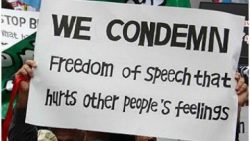
Sixty years ago, higher education had an open culture where students and professors could explore many different social and political perspectives, views, values, and theories. Together, they would consider different approaches, argue about them, and draw what conclusions they could. But for the last half-century, universities have transitioned from an open to a closed culture, […]
Read More
Most professors and students in the social sciences, humanities, education, social work, and law, and most university officials at Canadian and American universities today have adopted a political ideology labelled “social justice,” which requires redress for categories of people deemed “oppressed” for reasons of race, gender, sexual preference, ethnicity, and/or religion. For the many who […]
Read More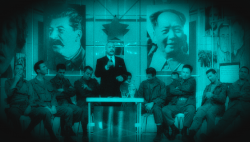
Universities in the 20th century were dedicated to the advancement of knowledge. Scholarship and research were pursued, and diverse opinions were exchanged and argued in the “marketplace of ideas.” This is no longer the case. Particularly in the social sciences, humanities, education, social work, and law, a single political ideology has replaced scholarship and research, […]
Read More
It is a truth universally acknowledged by “progressives” that all cultures are equally good and equally valuable. Common sense says that this is nonsense. I lived for eighteen months with a nomadic tribe in southeastern Iran in order to study their way of life. These people were ethnically Baluch and religiously Sunni Muslim. They lived […]
Read More
Soon after arriving at McGill University in 1968 from a year of ethnographic field research in Iran, I met an intelligent and sincere young man, an anthropology student, who told me that North American culture was the most corrupt culture in the world. I asked him where else he had been in the world, where […]
Read More
Perhaps the greatest shift in any academic field in the past 30 or 40 years has been in anthropology. Call it an epistemological paradigm shift away from science. Three main influences led to this shift: One was the morphing of symbolic anthropology into interpretive anthropology under the influence of Clifford Geertz, who distanced himself from […]
Read More